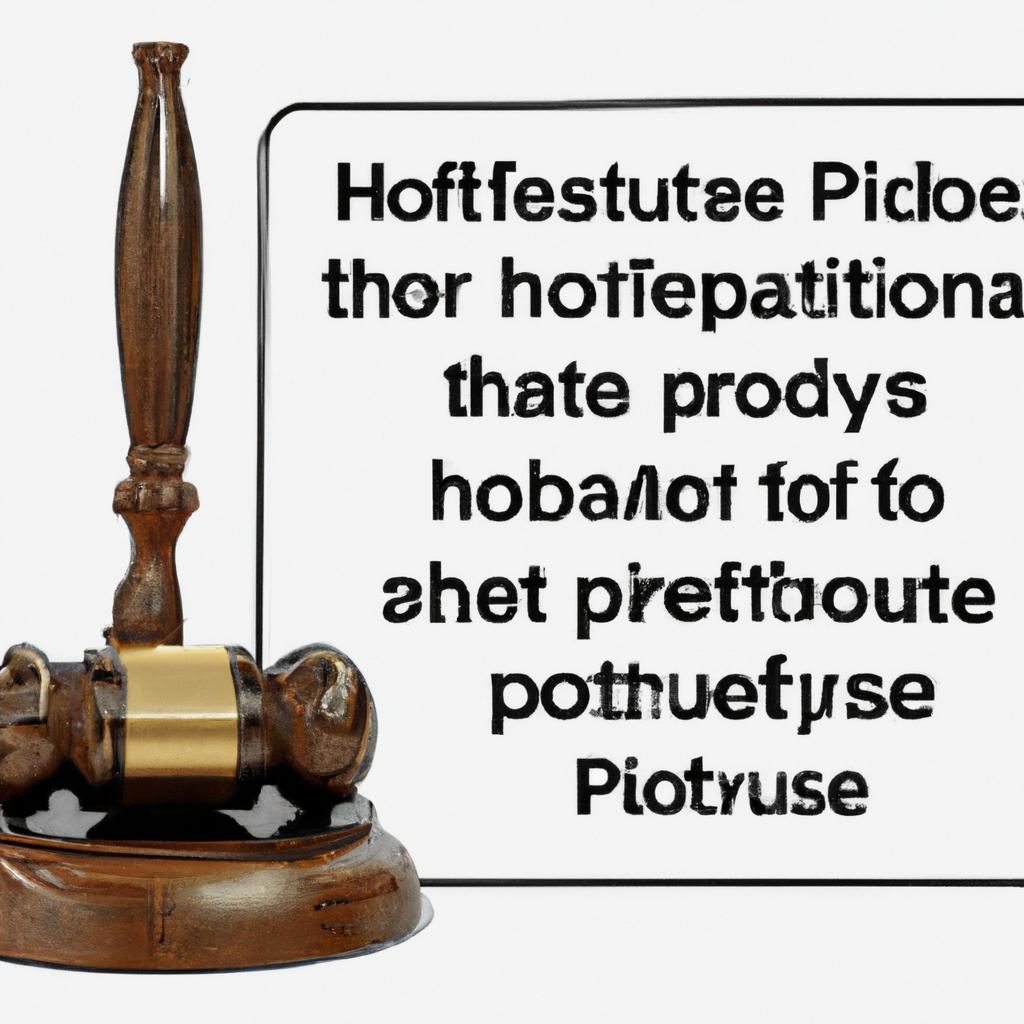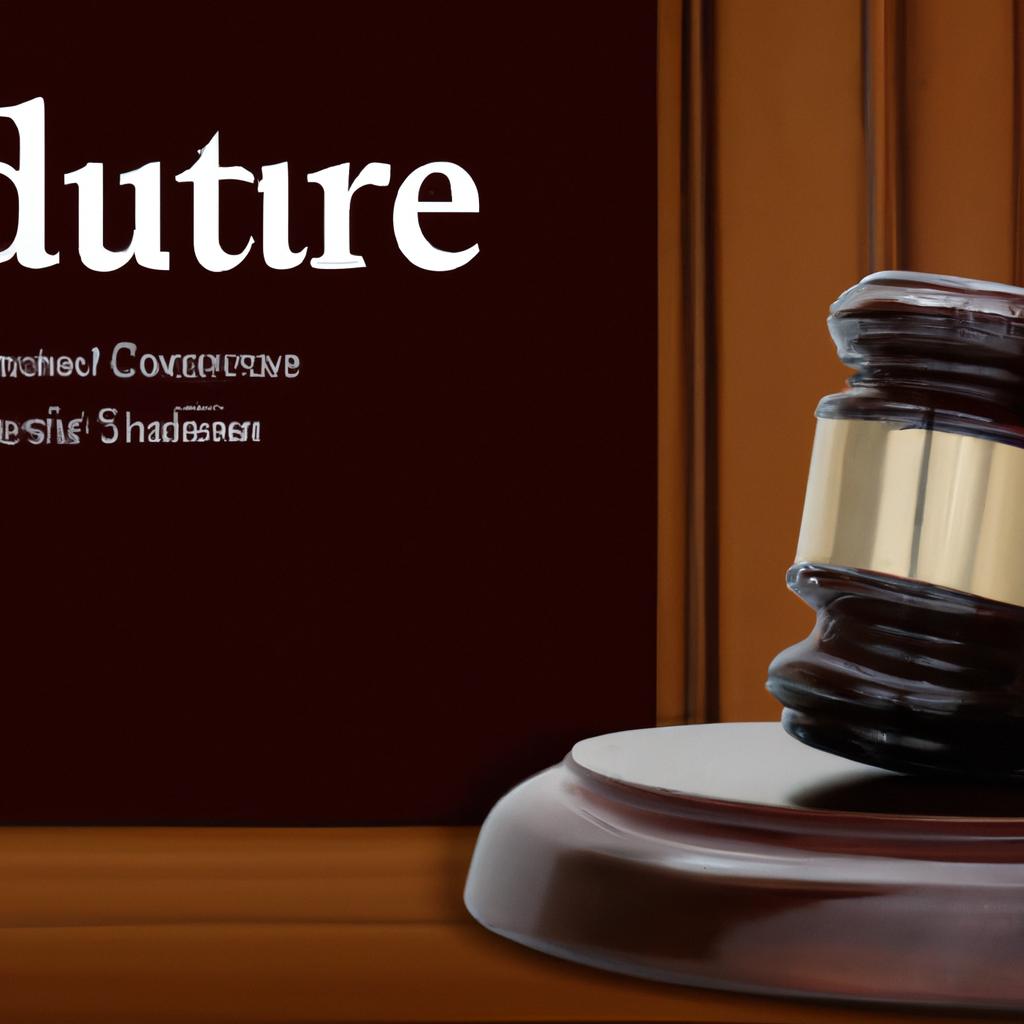When it comes to estate planning, the fate of household items often remains a mystery to many individuals. As experienced lawyers specializing in probate matters, we at Morgan Legal Group understand the importance of addressing every aspect of estate distribution. In this article, we will delve into the question of whether household items go through probate, providing clarity and guidance for those navigating the complex realm of estate planning.
Understanding the Probate Process for Household Items
When it comes to the probate process for household items, it is important to understand the procedures involved in transferring ownership of these assets. Household items such as furniture, appliances, and personal belongings are typically considered part of the decedent’s estate and may need to go through probate in order to be distributed to beneficiaries. The probate process for household items involves several steps and can vary depending on the state’s laws and regulations.
During the probate process, household items will be inventoried and appraised to determine their value. These items will then be distributed according to the decedent’s Will or state intestacy laws if there is no Will in place. It is important to note that certain household items may be exempt from probate, such as jointly owned property or items held in a trust. Consulting with an experienced probate attorney can help you navigate the process and ensure that your loved one’s household items are distributed in accordance with their wishes.

Key Considerations for Including Household Items in Your Will
When including household items in your will, it is important to consider a few key factors to ensure a smooth probate process. Firstly, it is essential to clearly identify and describe the items you wish to include in your will. This can help prevent any confusion or disputes among your heirs regarding the distribution of these items. Additionally, consider the sentimental or monetary value of each item to determine how they should be distributed among your beneficiaries.
Another important consideration is to specify whether you want certain household items to go through probate or be distributed outside of the probate process. Items designated to go through probate will be subject to the court’s supervision, which can prolong the distribution process. On the other hand, items distributed outside of probate, such as those held in a trust or through joint ownership, can be transferred more quickly and efficiently. Consult with an experienced estate planning attorney at Morgan Legal Group to help you navigate these decisions and ensure your wishes are carried out effectively.

Strategies for Avoiding Probate for Household Items
When it comes to household items, many people wonder whether they go through probate. The answer is yes, household items such as furniture, jewelry, artwork, and other personal possessions are typically included in the probate process. However, there are strategies you can use to avoid probate for these items and ensure they are passed down to your loved ones seamlessly.
One effective strategy is to create a living trust and transfer ownership of your household items to the trust. This allows your loved ones to inherit the items without having to go through the probate process. Another option is to designate beneficiaries for specific items using a personal property memorandum. By clearly outlining who will receive each item, you can help avoid confusion and potential disputes among your heirs. It’s important to consult with an experienced estate planning attorney to determine the best strategy for your unique situation.

Consulting a Probate Lawyer for Guidance on Household Items Inheritance
When it comes to inheriting household items, many individuals wonder if these possessions go through probate. The answer to this question largely depends on the specific circumstances surrounding the estate. can provide clarity and ensure that the process is handled correctly.
Probate laws vary by state, and the classification of household items in an estate can differ. Items such as furniture, appliances, jewelry, and personal belongings may need to go through probate if they are not specifically addressed in a Will or trust. Working with a knowledgeable probate lawyer can help you navigate the legal complexities of inheriting household items and ensure that your loved one’s wishes are carried out properly. Consider seeking professional legal advice to ensure a smooth and efficient probate process.
Q&A
Q: What happens to household items in probate?
A: Household items such as furniture, appliances, and personal belongings may need to go through the probate process if they are not specifically bequeathed in a will.
Q: Do all household items go through probate?
A: Not necessarily. Some states have simplified probate processes for small estates that may exempt certain household items from the probate process.
Q: How can I ensure my household items avoid probate?
A: To avoid the probate process for your household items, you can create a detailed inventory of your personal belongings and specify who will inherit them in your will or trust.
Q: Can household items be sold during probate?
A: Yes, household items can be sold during the probate process to settle debts or distribute assets to beneficiaries.
Q: What are some common household items that may be subject to probate?
A: Common household items that may go through probate include jewelry, artwork, antiques, and valuable collections.
Q: Can I gift my household items before I pass away to avoid probate?
A: Yes, you can gift your household items before you pass away to avoid probate, but it is important to consult with a legal professional to ensure that the transfer is done correctly.
Key Takeaways
In conclusion, while household items such as furniture, appliances, and personal belongings may not typically go through probate, it is always wise to consult with a legal professional to ensure that your assets are properly distributed according to your wishes. By taking the necessary steps to protect your estate, you can provide peace of mind for yourself and your loved ones in the future. Remember, it’s never too early to start planning for the inevitable. Thank you for reading!
 Do Household Items Go Through Probate: Understanding the Process and Implications
Do Household Items Go Through Probate: Understanding the Process and Implications
The death of a loved one is a difficult and emotional time, and often comes with many legal and financial matters that need to be addressed. One of these matters is probate, which is the legal process of administering a deceased person’s estate. Probate involves identifying and gathering the deceased person’s assets, paying any debts and taxes, and distributing the remaining assets to the beneficiaries.
One question that often arises during the probate process is whether household items, such as furniture, appliances, and other personal items, also go through probate. In this article, we will discuss this topic in detail and provide valuable insights into how probate affects household items.
What is Probate and When Does it Happen?
Probate is a legal process that takes place after a person passes away. It involves proving the validity of the deceased person’s will, if there is one, and distributing their assets according to their wishes. This process is supervised by the court and ensures that the deceased person’s debts are paid and their assets are distributed to the rightful beneficiaries.
The probate process usually happens when someone dies leaving behind assets in their name. This can include real estate, bank accounts, investments, and personal property. However, some assets do not need to go through probate, and we will discuss this further in the next section.
Which Assets Go Through Probate and Which Do Not?
In general, assets that are solely owned by the deceased person must go through probate. This includes assets that are in their name only and do not have a designated beneficiary. Some examples of assets that may require probate include:
– Real estate such as a primary residence, rental properties, and vacation homes
– Bank accounts and investment accounts held solely in the deceased person’s name
– Business interests that were not held in a trust or had no designated beneficiary
– Personal property such as vehicles, jewelry, and household items
On the other hand, assets that are jointly owned, have a designated beneficiary, or were held in a trust do not need to go through probate. For example, if a house is owned jointly by a married couple, the ownership automatically transfers to the surviving spouse without going through probate. Similarly, life insurance policies and retirement accounts often have designated beneficiaries who will receive the assets without the need for probate.
Do Household Items Need to Go Through Probate?
Based on the above information, it may seem that all household items need to go through probate, as they are typically owned solely by the deceased person. However, in reality, many states have simplified or streamlined probate procedures for small estates, which may exclude household items from the process.
For example, in California, estates worth less than $166,250 do not need to go through formal probate. In this case, the executor of the estate can use a simplified procedure called a “small estate affidavit” to transfer ownership of the personal property without going to court. This method is less expensive and time-consuming than the traditional probate process and is designed to handle smaller estates more efficiently.
In other states, the value of the estate that qualifies for simplified probate may vary, but it typically ranges from $20,000 to $100,000. If the estate falls under this threshold, the executor can use an expedited process to transfer ownership of the household items without going through probate. It is crucial to note that the specific laws and procedures for probate vary from state to state, so it is best to consult with an attorney in your state for detailed and accurate information.
Practical Tips for Managing Household Items During Probate
If household items do need to go through probate, it is essential to manage and distribute them carefully. Here are some practical tips to keep in mind:
1. Make a list of household items: The executor of the estate should create a list of all household items included in the estate, along with their estimated value. This will help in the valuation of the estate and ease the distribution process.
2. Communicate with beneficiaries: It is crucial to communicate with the beneficiaries about the household items and involve them in the decision-making process. This can help avoid any misunderstandings or disputes later on.
3. Consider alternative options: Instead of selling or distributing the household items, the executor can also consider donating them to a charity or gifting them to family and friends. This can save time and money and also honor the wishes of the deceased.
4. Get a professional appraisal: If there are any valuable or antique items, it is best to get a professional appraisal to determine their accurate value. This can prevent any conflicts between beneficiaries and ensure fair distribution.
The Benefits of Avoiding Probate for Household Items
As mentioned earlier, certain assets, including household items, do not need to go through probate. This can bring several benefits to the beneficiaries, such as:
1. Time and cost-saving: Avoiding probate for household items can save both time and money for the beneficiaries. This is because the probate process can be lengthy, expensive, and involve court and attorney fees.
2. Privacy: Probate is a public process, meaning that anyone can access the information and details of the estate. Avoiding probate can help maintain the privacy of the beneficiaries and keep the details of the estate confidential.
3. Avoiding disputes: The probate process can sometimes lead to disagreements or disputes between family members or beneficiaries. By avoiding probate, these conflicts can be avoided altogether.
Real-Life Case Studies
To better understand how probate affects household items, let’s take a look at some real-life case studies:
1. A couple had a joint will, leaving their entire estate to their children equally. However, the husband died first, and the wife wanted to change the terms of the will, leaving everything to her son. The state laws permitted her to do so, and after her death, the son inherited everything, including the household items.
2. A man passed away, leaving behind a house, cash, investments, and personal belongings. The beneficiaries had to go through the probate process for the cash, investments, and household items. However, the house passed directly to his daughter, as it was jointly owned by them with a right of survivorship.
Tips and Resources to Guide You Through the Probate Process
Dealing with the probate process can be daunting. Here are some resources that can help you navigate the process smoothly:
1. Consult an attorney: As mentioned earlier, the specific laws and procedures for probate may vary from state to state. Consulting with an attorney who specializes in probate law in your state is the best way to ensure accurate and reliable information.
2. Use probate software: If you are the executor of the estate, you can also use probate software to streamline the process. These software programs can help organize and manage the necessary paperwork and calculate the estate’s value automatically.
3. Join support groups: Dealing with the loss of a loved one and the added stress of managing their estate can be overwhelming. Joining a support group or seeking counseling can help you cope with the emotional aspects of probate.
Conclusion
In summary, household items may or may not need to go through probate, depending on the state laws and the value of the estate. It is best to consult with an attorney to determine if the estate qualifies for a simplified probate process and to ensure a smooth and fair distribution of household items. Avoiding probate for household items can also bring several benefits such as time and cost-saving, privacy, and avoiding potential disputes.


